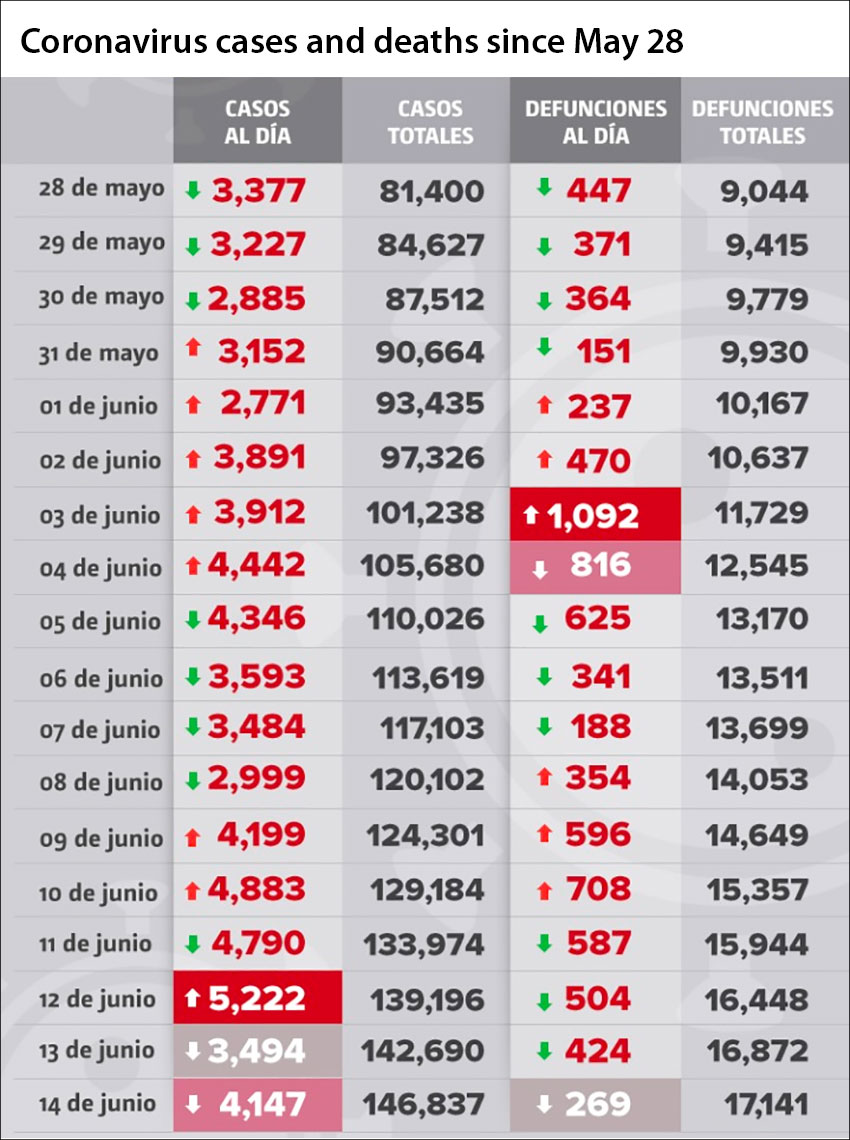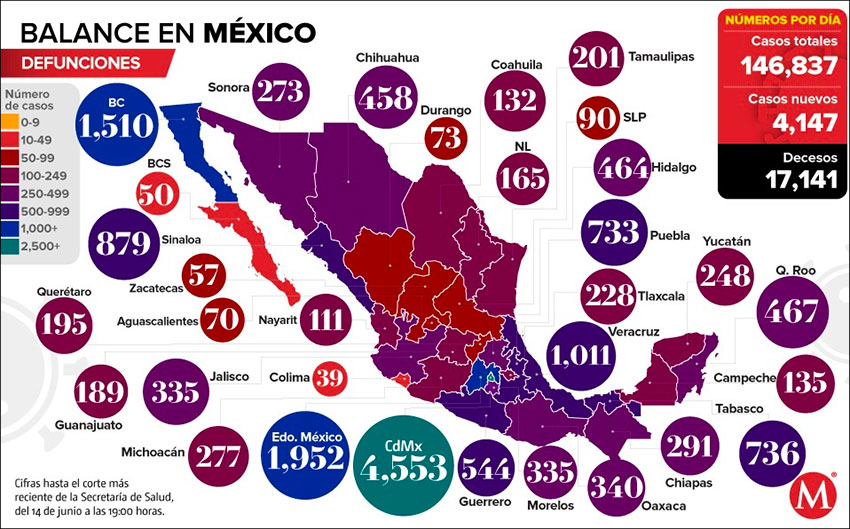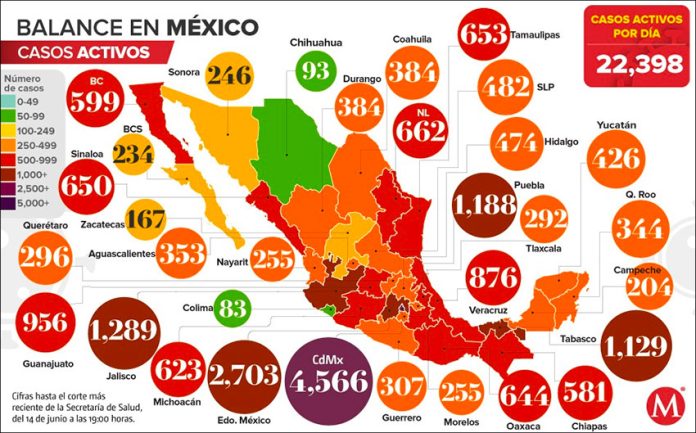The coronavirus pandemic “won’t end soon,” Deputy Health Minister Hugo López-Gatell said Sunday as more than 4,000 new Covid-19 cases were added to Mexico’s tally.
Speaking at the Health Ministry’s nightly coronavirus press briefing, López-Gatell said that there will be “ups and downs” in infection rates and that the first wave of the pandemic is expected to last until October.
He said that a second wave of coronavirus infections could accompany the influenza epidemic between October and March.
It is “essential” that Mexicans learn to live with the virus and adopt permanent measures to limit its spread, López-Gatell said, stressing that even after restrictions are lifted people should continue to stay at home as much as they can and keep a “healthy distance” from each other when they go out.
“How is the virus transmitted? By the respiratory tract. What are the main prevention measures? Stay out of public spaces; in other words, stay at home as long as that is possible. If going out … is essential … [we have to] keep a healthy distance. What is a healthy distance? Two meters from another person,” he said.

Earlier in the press briefing, the deputy minister reported that Mexico’s Covid-19 case tally had increased to 146,837 with 4,147 new cases registered on Sunday and that the death toll had risen to 17,141 with 269 additional fatalities.
López-Gatell said that 22,398 cases – 15% of the total – are considered active. There are also 52,636 suspected cases across the country while 406,549 people have now been tested for Covid-19.
The risk of infection is at the “red light” maximum level in half of Mexico’s 32 states, according to the government’s updated “stoplight” map published Friday, while the risk level in the other 16 states is at the “orange light” high level.
Mexico City continues to lead the country for total Covid-19 cases, active cases and deaths while México state ranks second in all three categories.
Even though Mexico City has the largest active outbreak in the country, Mayor Claudia Sheinbaum announced Friday that some restrictions will be eased this week as the capital transitions toward the “orange light” phase.
Sheinbaum said on Saturday that the easing of restrictions is justified because Mexico City is ramping up Covid-19 testing, a move she said will help to flatten the epidemic curve and reduce the number of new hospitalizations.

Authorities in the capital will aim to perform 2,700 tests a day after which they will track down people who came into contact with those who tested positive and ask them to self isolate. With more widespread testing, the number of cases detected is predicted to increase by between 20% and 30% over current levels.
Sheinbaum said that Mexico City is the only entity in the country with a widespread testing and tracing program, adding that citizens also have a role to play in helping to reduce new infections.
If infection and hospitalization trends don’t decrease as much as authorities would like by Friday, the commencement of the “orange light” phase could be pushed back another week, the mayor said. As a result, Mexico City would remain a “red light” entity until at least June 29.
Outside the capital and neighboring México state, which have 4,566 and 2,703 active cases, respectively, the largest active Covid-19 outbreak is in Jalisco.
The western Mexico state has 1,289 active cases, according to official data, while Puebla and Tabasco also have more than 1,000 active cases.
The five states with the highest Covid-19 death tolls are: Mexico City, with 4,553 fatalities; México state, with 1,952; Baja California, with 1,510; Veracruz, with 1,011; and Sinaloa, with 879.

Even as case numbers and deaths continue to show steady growth, President López Obrador said Sunday that Mexico has passed “the most difficult phase” of the pandemic.
“It’s not a matter of singing victory … but I believe that the most difficult phase, the riskiest phase has passed,” he said.
If citizens had not acted with responsibility in the face of the pandemic, the health system in the Valley of México metropolitan area – the country’s coronavirus epicenter – would have been overwhelmed, López Obrador declared.
“If we hadn’t had your support, [the pandemic] would have completely overwhelmed us at the end of March or the start of April … in the Valley of México because we wouldn’t have had enough beds,” he said. “We wouldn’t have been able to attend to sick people, we wouldn’t have had [enough] ventilators.”
López Obrador highlighted that federal authorities recruited more than 46,000 health workers to respond to the pandemic, stating that all of them were trained to treat Covid-19 patients in just over three months.
Like López-Gatell, he stressed that citizens must act with responsibility to help avoid new outbreaks of Covid-19 as restrictions are lifted.
“We’ll be able to go out to the street and we’ll be able to carry out our activities like always. … We can now recover our freedom, … we have to be attentive to the health authorities but the most important thing is that we take care of ourselves,” López Obrador said.
Source: Milenio (sp), La Jornada (sp), El Financiero (sp)
